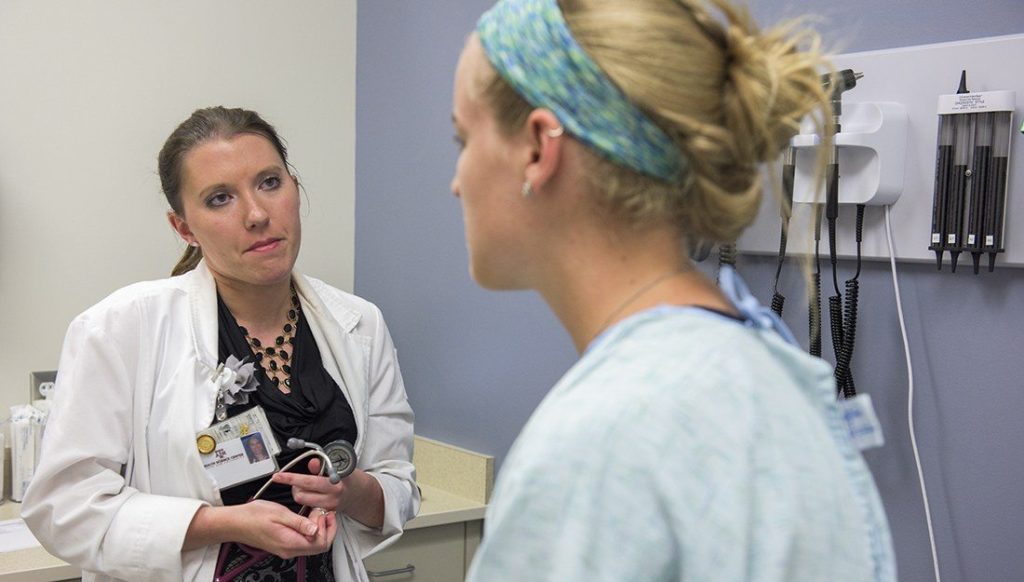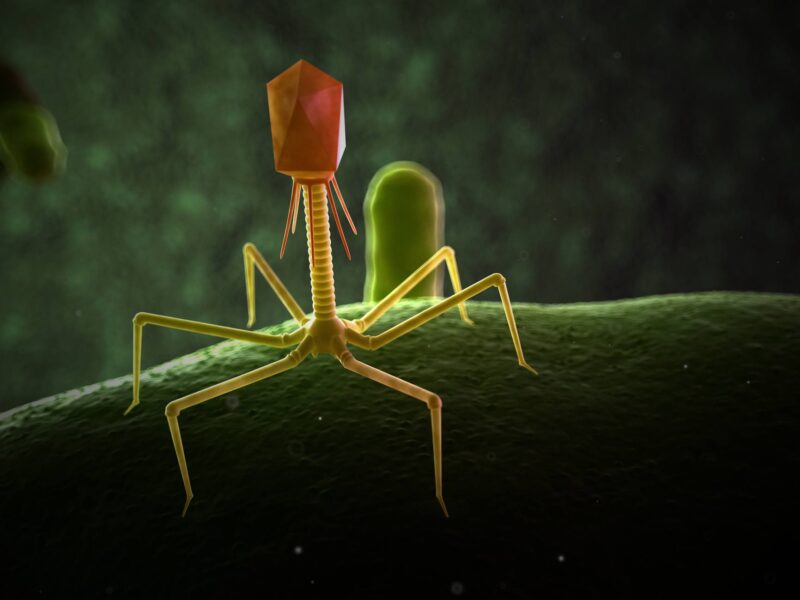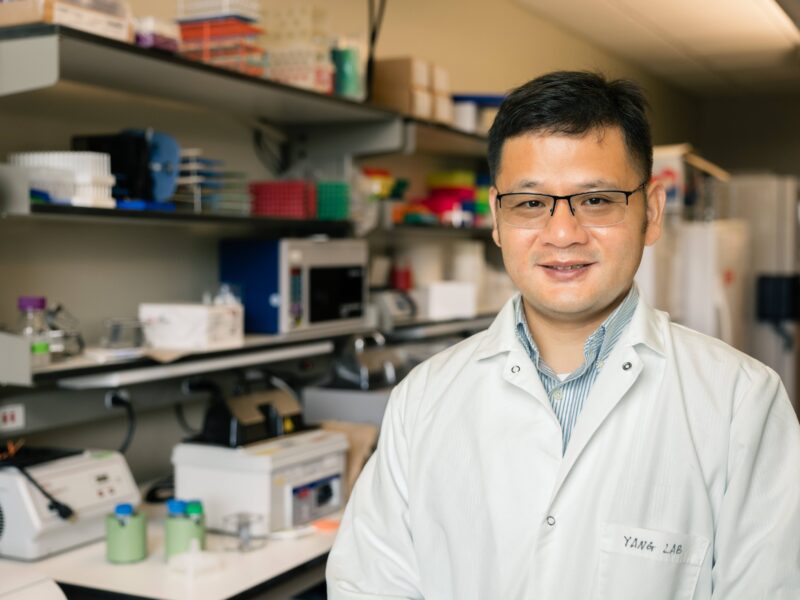Screenings are the best way to detect cancer early, and early detection is more likely to lead to better outcomes. However, for those individuals without health insurance, screening tests can often be prohibitively expensive. To help women access these important services, the Cancer Prevention and Research Institute of Texas (CPRIT) recently awarded $1.35 million to David McClellan, MD, clinical assistant professor at the Texas A&M College of Medicine, and Jane Bolin, JD, BSN, PhD, professor at the Texas A&M School of Public Health and director of the Southwest Rural Health Research Center, to provide breast and cervical cancer screenings and prevention education in 17 Texas counties.
These funds, which will be used over three years, are a continuation of the original three-year grant, awarded in 2013, and provide services in nine counties in the greater Brazos Valley region, five of which are considered rural. The original grant allowed clinicians to provide a total of 2360 clinical services to 1353 women while also contributing to increased training for family medicine resident physicians and nurse practitioner (FNP) students.
The new CPRIT women’s cancer grant allows services to continue in these areas while expanding the program to eight new counties, most of which are rural. According to data from the Texas Cancer Registry, low-income and medically underserved women residing in rural areas of Texas suffer from significantly lower survival rates associated with breast and cervical cancer. Early detection of breast cancer has a strong influence on five-year survival rates: Cases detected early have a 98.8 percent chance of survival, while cases detected at a late stage have a 26.3 percent chance of survival.
In its first three years, screenings provided through the grant found 11 breast cancers, two cervical cancers and 141 cervical cancer precursors. The uninsured patients diagnosed with cancer were referred to appropriate treatment programs, such as the Texas Department of State Health Services for the Medicaid for Breast & Cervical Cancer treatment program.
In its first three years, the grant has provided for 373 clinical breast exams, 993 mammograms, 203 breast ultrasounds, 43 breast biopsies, 474 Pap tests, 215 colposcopies (a way of diagnosing cervical issues) and 49 loop electrosurgical excisions, or LEEPs, another way of diagnosing problems of the cervix. 161,000 people have likely been reached through television, radio, brochures and other outreach and 5,177 people educated one-on-one by community health workers. There have been 11 breast cancers and 2 cervical cancers found and 141 cervical cancer precursors diagnosed.
CPRIT Awards More Than $9 Million In Cancer Research Grants To Texas A&M
“We are thrilled to be able to continue and expand on the work we began with the previous CPRIT grant for women’s cancer prevention,” Bolin said. “We are working to ensure that low-income and underserved women in the greater Brazos Valley have access to affordable and culturally relevant screenings, diagnostics and navigation services related to breast and cervical cancer.”
The grant provides free services to uninsured or underinsured women living in any of the 17 counties who qualify based on their income level, which can be up to 250 percent of the Medicaid federal poverty guidelines. The women are largely 21 through 64 years of age; not only because they are the group least likely to be covered by Medicare or Medicaid but also because they are among the ages that most need the tests: Screening mammograms are recommended every two years for women 50 to 74 years of age, and Pap tests are recommended every three years for women aged 21 through 64.
Dozens of clinical and community partners that work with safety-net populations refer patients for the grant services. The procedures are typically provided at the Texas A&M Physicians Family Medicine Center in Bryan, Texas. One referring partner, Health for All, a non-profit medical safety-net clinic in Bryan, Texas, is also a site for Texas A&M family nurse practitioner students—under the supervision of Texas A&M College of Nursing faculty members—to provide some of the screenings.
“It’s really a win-win,” said Cindy Weston, DNP, RN, FNP-BC, faculty for the family nurse practitioner students who receive training through the program. “Low income women in the Brazos Valley have few options to receive health and wellness care, and our family nurse practitioner students have challenges in securing women’s health clinical immersion sites. This grant allows us to offer a free wellness clinic for women to fill this gap in care while providing supervised clinical opportunities for the students.” At each of the well-women clinics, the FNP students see six to eight patients per day. This allows them to spend nearly an hour with each woman, discussing any health concerns along with healthy lifestyle and diet, exercise, smoking cessation, prevention of chronic disease, Pap tests to screen for cervical cancer and clinical breast exams, along with a referral for a mammogram if need be.
In addition to the actual screenings, the grant has also allowed for interprofessional training of resident physicians and nurse practitioner students at the Texas A&M Clinical Learning Resource Center. Using trained actors in the role of patients, advanced procedures such as breast biopsies and colposcopies have been rehearsed and trainees have practiced engaging in informed consent scenarios and interpreting findings to challenging patients.
“Some of the women we see haven’t had a well-woman exam in 15 years,” Weston said. “We’re able to holistically address women’s health and wellness while developing in our students not only clinical skills but also a cultural competency and sensitivity for meeting the needs of the medically underserved in our community.”
Mobile mammogram days funded under these grants have been instrumental in meeting patients where they need medical care the most. These units can travel to rural counties and provide screenings in accessible locations like churches and community centers for patients that otherwise wouldn’t be able to be screened. “A lack of transportation is a major barrier to care,” Bolin said. “Mobile mammography is critically important to make breast cancer screenings accessible to rural-dwelling women.”
This grant is one of six awarded to faculty in the Texas A&M College of Medicine, many of which include interprofessional collaborations with faculty across the Texas A&M University Health Science Center, totaling more than $8.6 million.
“Until this grant was funded, we weren’t sure how we would be able to continue providing these important services and trainings,” Weston said. “Now, we can, which is wonderful because I really feel like we were just getting started and word was getting out that we provide these services.”
The program operates as the Texas Cancer Screening, Training, Education and Prevention program (Texas C-STEP), which also provides colon cancer screenings. For more information about women’s health screenings, call 979-436-0453, and for colonoscopy information, call 979-436-0443.
###
This story by Christina Sumners originally appeared in Vital Record.





